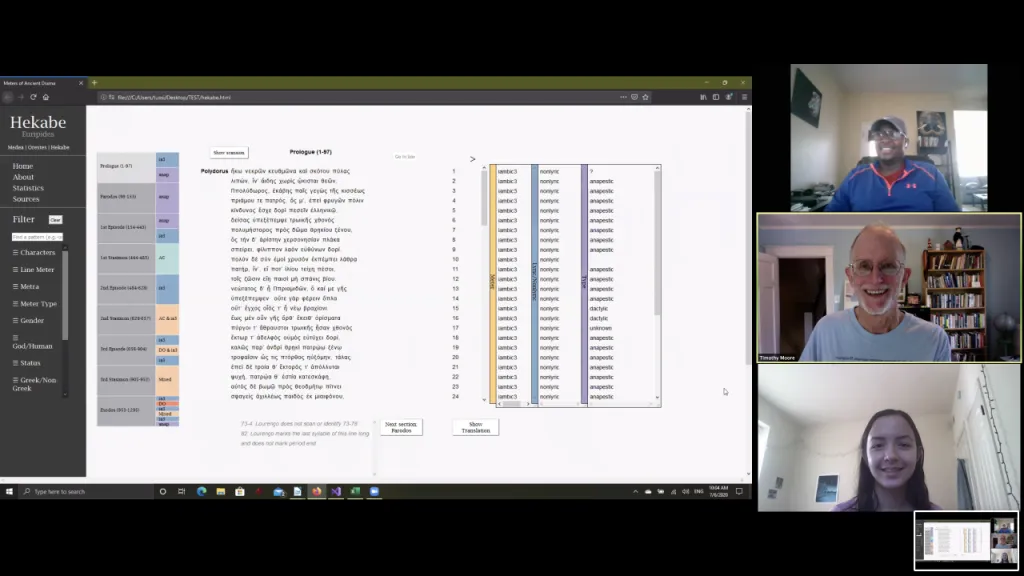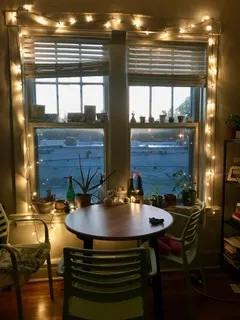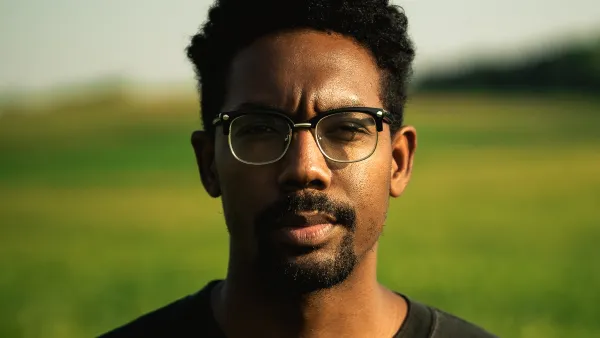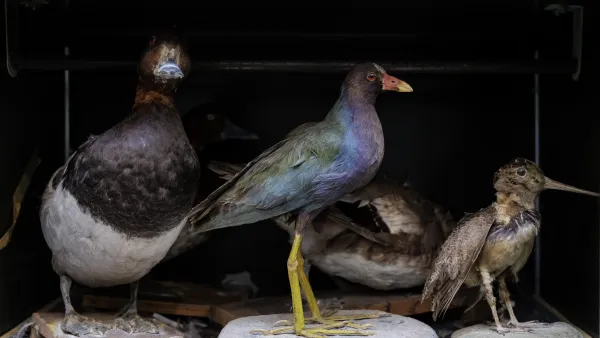March 2020 is seared in our collective memory as the date when we knew that life as we knew it would abruptly halt. March 2021, likewise, will forever be remembered as the time when we paused to reflect on the intervening 12 months. Alongside efforts by our colleagues around the university to catalog the creativity and innovation necessitated by the pandemic, and to collect the moments of grace and gratitude that inspired us, the Center for the Humanities asked members of our humanities community to tell us about their experiences over the past year. Here’s what they said — their thoughts, anecdotes, complaints and cris de coeur about the COVID-19 pandemic.
2010: friends bring wine and appetizers and stay for dinner...
forward 10 years...
2020: friends bring masks and alcohol wipes and we visit outside, six feet apart...
The Good
Timothy Moore, the John and Penelope Biggs Distinguished Professor of Classics, shared a story about how he and his students moved forward on his collaborative research project with a little flexibility and persistence. Substituting regular in-person trouble-shooting sessions with near daily Zoom meetings, Moore and his interns found some advantage in the new arrangement, including the ability to share documents on their computer screens and opportunities for simultaneous work on documents. “One intern and I even delivered a paper on the project remotely at a conference hosted in Bari, Italy, though it meant we had to speak at 4:30 a.m. our time!” he wrote. “The ingenuity and flexibility of the staff at the Humanities Digital Workshop and of my excellent student interns have turned what could have been a disaster into a valuable impulse for developing new techniques.”

Similarly, Professor of Classics Catherine Keane was impressed by the banding together of colleagues to make the new situation work: “While I painfully miss using the physical library and searching through the books on which I depend, many of them unavailable in other forms, I am in awe of the Olin staff who hunted down and scanned things for me as I struggled to get research done during last spring and summer,” she wrote.
It also became evident that the recent turn to digitization of library and archival materials helped scholars tremendously while in-person examination wasn’t possible. “I have new appreciation for the collective project of scholars, over the last few decades, to digitize primary and secondary resources,” Keane wrote. “Each individual project represents so much initiative, labor and optimism.”
The Bad
Technology challenges have been a ubiquitous facet of work-from-home life. One anonymous respondent illustrated these kinds of ordeals to comedic effect: “For those of us teaching and having to take care of our children at the same time, there is no question that the pandemic has created considerable challenges in order to simply ‘function,’ let alone ‘juggle’ our various home/work responsibilities. I’ll share a related anecdote: teaching a Zoom session with 20-plus students online, momentarily losing the internet connection, and having to quickly switch rooms to get a better wifi signal, literally running across the house, still teaching the class, wifi signal suddenly back on, and then having to settle in the kitchen for the rest of the class. Meanwhile, one of my kids is finishing lunch, looking at me not fully understanding all the hassle, or why I'm actually ... teaching in the kitchen...”
Several people who wrote in referenced the horrifying number of pandemic deaths and, as one anonymous respondent put it, “the fear and anxiety associated with the spread of the virus.”
Even those of us who have been spared the worst effects of the pandemic still felt the oppressive weight of isolation, of “almost never being in the same space with other three-dimensional human beings.”
One person wistfully reminisced about daily campus life: “I miss running into people — students, staff, faculty — on campus. I miss having conversations in the middle of a quad, or while buying a sandwich, or in the series of incredibly slow elevators that dot our campus. I miss detouring around any of the series of student events, games and/or protests that seem to spring up when there’s nice weather. I even miss the little encounters between strangers that make up a normal semester: it seems as if there’s always one student on a striking unicycle/hoverboard/scooter who I wind up passing every Tuesday and Thursday as I rush to my classroom, never actually speaking to them, but always wondering what their story is. So I guess what I miss most is not the campus itself, but the sense of community that animates a campus, which is really, really difficult to convey over Zoom.”
The Unexpected
The cascade effects of the pandemic also sometimes took an unexpected turn. For some, it brought their families closer together: “Instead of grabbing food on the go or split dinner times to accommodate after school activities, my family now sits down around the dinner table together every night.”

And for others, it provided the opportunity to renew a commitment to self-care: “I am a lap swimmer and have found a way to do that safely and am swimming longer and faster than I have since high school (and that was decades ago!).” Mattie Gottbrath, coordinator for international programming in the Global Studies Program, wrote in to share that having work and home occupy the same physical space forced her to contemplate and shape a positive routine of work-life balance. “I learned to have flexibility and patience with myself. The slow mornings free of a morning commute: plentiful time to run, practice yoga, meditate and savor breakfast and coffee. The realization that it’s okay to not be laser-focused every minute between 9 a.m. and 5 p.m.: We aren’t meant to work between those hours and live in the others. It’s all living, and the pandemic taught me to face that fact.” The cancelation of the St. Louis Marathon in March 2020 inspired Gottbrath and her friends to run their own marathon on the Katy Trail, and then to run a cumulative 100 miles in the next a week.
The new work-from-home arrangement’s emphasis on technology also brought with it new possibilities for connection. Jean Allman, director of the Center for the Humanities and the J.H. Hexter Professor in the Humanities wrote that “the global reach of Zoom has meant that I can connect with friends and colleagues across the globe in ways that were unimaginable a year ago. I ‘attended’ a wonderful book launch in Kampala. Another in Cape Town. A seminar in Leiden.”
Perhaps most unexpected is that we’re still connecting through our screens, even after a year of being forced to communicate almost no other way. Classics professor Keane summed it up: “Although like everyone I am tired of Zoom in a general way, I never get tired of seeing the faces of my colleagues and students pop on my screen: a little miracle.”
Headline image by Mélanie These via Unsplash




